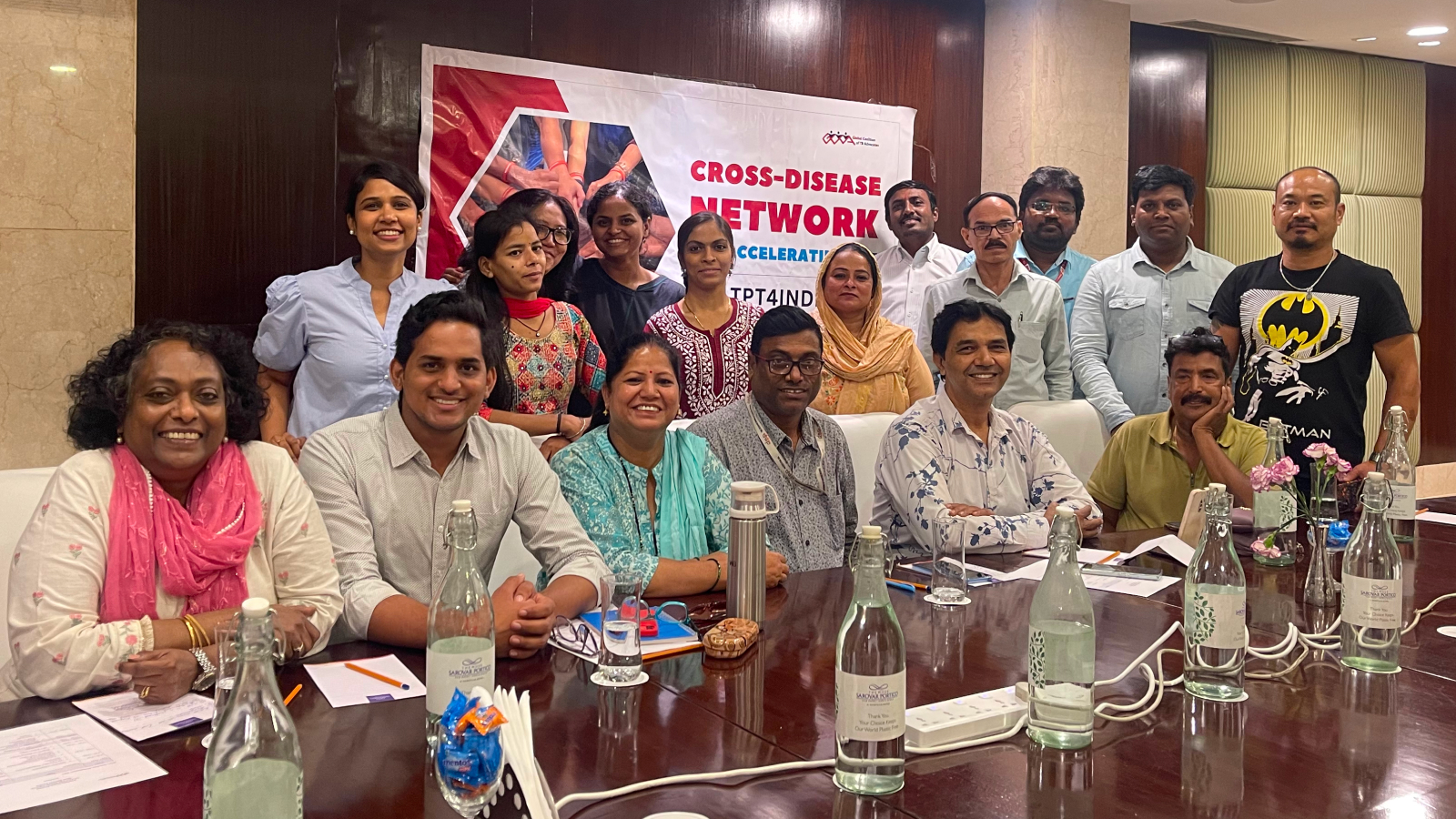Working with a cross-disease network to provide treatment literacy for 3HP

India’s National Strategic Plan to eliminate TB by 2025 has 4 pillars and Prevent is one of the four critical pillars (Detect – Treat – Prevent – Build). In 2021, the NTEP (National TB Elimination Programme) took a significant step towards this ambitious goal by expanding its TPT policy to include all household contacts (HHC) of index pulmonary TB patients irrespective of their age, and other risk groups. Global Fund has also been supporting NTEP by funding substantial projects that promote TPT interventions. Despite these efforts, the TB Annual Report 2022 notes that a review conducted by the Central TB division of all the states and union territories revealed that only 6% of eligible HHC aged more than five years old received TPT from July to December 2021.
Although India has demonstrated significant expansion of TPT programs through investment in projects, NTEP policy change, new programmatic guidelines, and the work of 3 Global Fund PRs, the implementation of TPT in children and HHC is far from reaching the target. Lack of treatment literacy and Community Led Monitoring is affecting the lack of demand for short course TPT. The challenges posed from the lack of community preparedness to take treatment while asymptomatic, largely due to inadequate information and counselling regarding the significance of TPT, coupled with suboptimal engagement with the community, is resulting in most HHC being hesitant to take their medications as prescribed. The other significant challenge is the cost of currently available tests to rule out TB in people with LTBI.
To address the widening gap between India’s TPT goals and implementation, the GCTA formed a cross-disease network called TPT4India to facilitate meaningful engagement by equipping this group with the necessary skills and knowledge to effectively generate demand for short course TPT. Its members were meticulously selected, bringing together TB champions, influential leaders from at-risk groups, and TPT implementers. This diverse group ensures an impactful approach to combating TB and its associated challenges, ultimately striving for an India where TB prevention is a shared and achievable goal.
